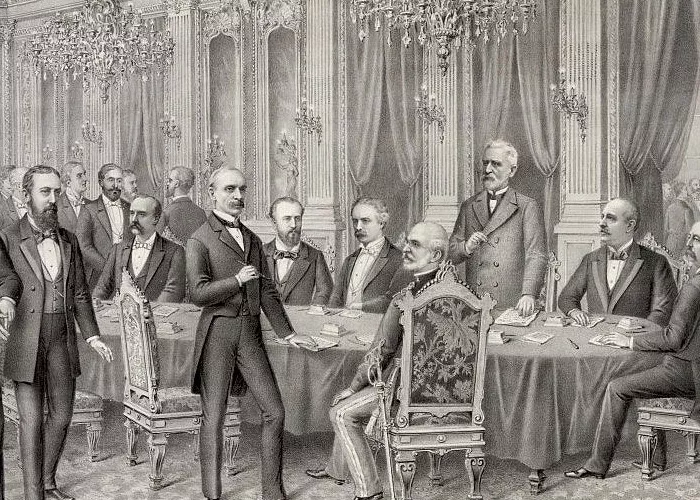November 30 has witnessed a variety of significant events throughout American history. These events range from pivotal political agreements to cultural milestones. Below is a detailed examination of notable occurrences on this day, highlighting their historical context and impact.
What Happened on November 30 in American History?
The Treaty of Paris (1782)
On November 30, 1782, the United States and Great Britain signed preliminary peace articles in Paris, marking a crucial step towards the end of the American Revolutionary War. This agreement laid the groundwork for the Treaty of Paris, which would be finalized in 1783, officially recognizing American independence.The negotiations were complex and involved various issues, including territorial disputes and the rights of loyalists. The successful conclusion of these talks was significant as it not only ended hostilities but also established the United States as a sovereign nation on the world stage. The treaty’s recognition of American borders allowed for westward expansion, which would shape the future of the nation.
The Death of King Charles XII (1718)
On this day in 1718, King Charles XII of Sweden died during a siege in Norway. His reign was marked by military engagements that expanded Swedish territories but ultimately led to significant losses. Charles XII’s death had profound implications for Sweden and its role in European politics.The death of Charles XII signaled the decline of Sweden as a great power. His aggressive military campaigns had exhausted the nation’s resources and led to a series of defeats against Russia and other nations. This shift in power dynamics opened the door for Russia to emerge as a dominant force in Eastern Europe.
The First International Football Match (1872)
November 30, 1872, is also notable for hosting the first international football (soccer) match between England and Scotland at Partick, Scotland. The match ended in a 0-0 draw, but it was significant as it marked the beginning of international competition in football.The event laid the foundation for what would become one of the world’s most popular sports. It fostered a sense of national pride and rivalry that persists to this day. The match is celebrated as a pivotal moment in sports history, leading to the establishment of international tournaments and leagues.
The Discovery of the Mask of Agamemnon (1876)
In 1876, German archaeologist Heinrich Schliemann discovered the gold Mask of Agamemnon at Mycenae in Greece on November 30. Although this event took place outside the United States, its implications resonated within American archaeology and historical scholarship.Schliemann’s discovery captivated public imagination and sparked interest in ancient civilizations among Americans. The mask is often referred to as “the Mona Lisa of prehistory,” highlighting its cultural significance. This event contributed to a growing fascination with archaeology and ancient history in America during the late 19th century.
The Winter War Begins (1939)
On November 30, 1939, the Soviet Union invaded Finland, marking the beginning of the Winter War. This conflict arose from Soviet demands for territorial concessions from Finland, which were rejected by Finnish authorities.The war lasted until March 30, 1940, resulting in significant casualties on both sides despite Finland’s valiant resistance against a larger Soviet force. The conflict drew international attention and sympathy for Finland, influencing perceptions of Soviet aggression leading up to World War II.
Civil War in Palestine (1947)
The civil war in Mandatory Palestine began on November 30, 1947, shortly after the United Nations General Assembly voted to partition Palestine into separate Jewish and Arab states. This decision was met with violence as tensions escalated between Jewish and Arab communities.The outbreak of violence marked a turning point in Middle Eastern history, leading to decades of conflict that continues to affect geopolitical relations today. The civil war eventually transitioned into a broader regional conflict following Israel’s declaration of independence in May 1948.
Michael Jackson’s “Thriller” Released (1982)
On November 30, 1982, Michael Jackson released his iconic album “Thriller,” which would go on to become one of the best-selling albums of all time. The album featured groundbreaking music videos and hit singles that transformed pop music.”Thriller” not only solidified Jackson’s status as a global superstar but also changed how music was marketed and consumed. It introduced innovative visual storytelling through music videos, influencing countless artists and shaping popular culture for decades.
Conclusion
November 30 is rich with historical significance across various domains—politics, sports, culture, and more. Each event reflects broader trends within American society and global history. Understanding these occurrences helps contextualize their impact on contemporary issues and cultural narratives. As we reflect on this day’s events, we recognize their lasting influence on our world today.
Related Topics:

